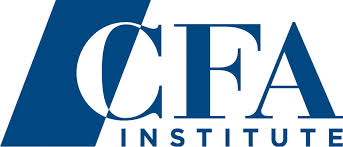Career Opportunities for CFA Charterholders

Is a Chartered Financial Analyst (CFA) designation worth the work required to obtain it, and is it better than other professional commitments, such as a Master of Business Administration (MBA) or Certified Public Accountant (CPA) designation?
To determine the value of the CFA designation, you must decide whether your chosen career path will require a position within a company or industry that values the CFA over other possible academic endeavors. Read on to get a better understanding of the careers that attract CFAs, and make sure these are positions you are interested in pursuing.
CFA versus MBA
The commitment to pursue the CFA cannot be understated. According to the CFA Institute, the following is the amount of time needed to obtain the CFA designation:
- Four years, on average, to complete the program
- Six months of preparation for each exam
- Over 300 hours of study time
Unfortunately, some candidates might never achieve the designation, whether it is due to lack of academic skill, work or life responsibilities, or other factors. Compare this commitment to the MBA; after being accepted into a program and following the course of study in an average of four semesters, most students receive a diploma. The CFA program is self–study. As such, there is certainly a lower likelihood of success. However, the decision to pursue either achievement should not be based on the length of time difficulty, or certainty of completing them, but instead on where they provide the most value, personally or professionally.
The advent of MBA programs providing coursework to help candidates with the CFA is an indication that the MBA may not provide enough of the specialization necessary to prepare students for an investment career. MBA programs provide students with a broad-based business background, enabling graduates to follow a myriad of different career possibilities within a corporate environment or even in entrepreneurial ventures.
Before the advent of the CFA, the MBA was the de facto requirement for the investment industry, but the specialized curriculum provided by the CFA has changed that. Now, most companies involved in making or managing investments insist that those in senior positions have the CFA and, in some cases, require that employees in senior positions have both academic achievements. Due to the history between the CFA and MBA designations, it is understandable why certain people find that deciding between the two programs is difficult.
The same cannot be said when deciding between the CFA and other specialized business certifications, including the Certified Financial Planner (CFP) and CPA. Because the CPA, a specialization within the accounting industry, is so very different from the CFA, anyone who is challenged with making a decision between them is someone who really hasn’t decided what type of career they wish to pursue.
Where CFAs Work
The following skills are valued by employers and can be identified by the CFA course of study. A student has to pass three exams before obtaining the CFA charter. Although all three exams focus on different aspects of the course, the main topics are indicated by the CFA Candidate Body of Knowledge (CBOK), as follows:
- Ethical and Professional Standards
- Quantitative Methods
- Economics
- Financial Reporting and Analysis
- Corporate Finance
- Equity Investments
- Fixed Income
- Derivatives
- Alternative Investments
- Portfolio Management and Wealth Planning
According to the CFA Institute: “The CFA Institute membership in more than 100 countries can be seen as a microcosm of the global investment profession, with virtually every type of investment professional at every type of investment firm represented.”
The CFA Institute provides the following breakdown of the most common professions:
- 5% Relationship Manager
- 16% Research Analyst
- 7% Chief Executive
- 7% Consultant
- 5% Corporate Financial Analyst
- 5% Financial Advisor
- 23% Portfolio Manager
- 6% Risk Manager
Look to Where Growth is Needed for CFAs
One way to determine what industries or companies value CFAs is to look at surveys that compare salaries between CFAs and those with other designations. The CFA Institute conducts compensation surveys that cover many countries; however, these surveys are only available to CFA Institute members.
If you are not a member but are interested in gaining insight into compensation differentials between CFAs and non-CFAs, contact your local analyst society, which can be found on the CFA Institute website. This can help answer your questions about industries and companies that pay premiums for the CFA.
The value of the CFA is increasing in areas where membership is growing. Although CFA Institute membership is increasing in the United States, it is growing faster in other countries that are realizing the benefit that comes with hiring CFAs. “That’s a sign of growing interest in the certification by employers and the greater availability of training at colleges,” said Bob Johnson, former deputy CEO of the CFA Institute.
The Bottom Line
It is clear that interest in the CFA is growing and that there is a significant benefit in terms of career growth and compensation for those who obtain it. However, the decision to commit to the rigorous study required cannot be taken lightly.
The CFA Charter, although extremely difficult to obtain, provides tremendous benefits, but only within certain industries and business sectors. The question of whether to commit to pursuing the designation requires a lot of introspection and a little bit of research.
If you do decide to become a candidate, make sure your decision is based on a passion for investing and the material to be studied. Simply stated, if your strengths and ambitions lie within the careers and industries that require the CFA designation, it may make sense for you to commit to obtaining one.
Source: Investopedia
Subscribe free to JarusHub for more tips on careers and education
[subscribe2]
Established in March 2013, JarusHub is a Nigerian information hub with focus on career and management. It is rated Nigeria's most authoritative destination for online career resources. It parades an array of Nigerian professionals who share their career experiences with a view to bridging career information gap and mentoring a generation to success. JarusHub has revolutionised career information and experience sharing in Africa. Whether you're a student, a recent graduate or an established professional, or even an executive, you will always find something to learn on JarusHub. All enquiries to jarushub@gmail.com or 0808 540 4500. Facebook: www.facebook.com/jarushub; Twitter: @jarushub or @mcjarus.
Attend JarusHub’s 2024 Seplat Assessment Center Coaching
October 29, 2024
Let us have your say by leaving a comment belowCancel reply
Recommended For You
-
JUST HOW EASY IS IT TO GET A JOB IN THE BIG 4?
August 9, 2016 -
COMPANY REVIEW: AIRTEL
March 4, 2018




